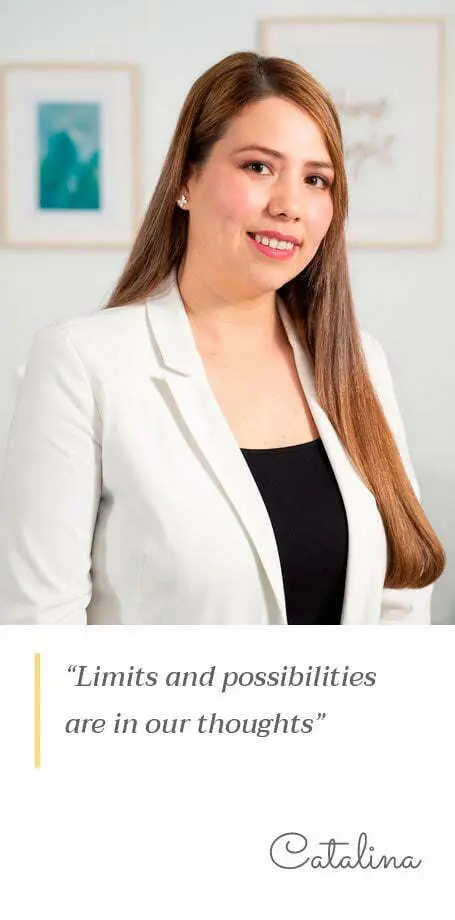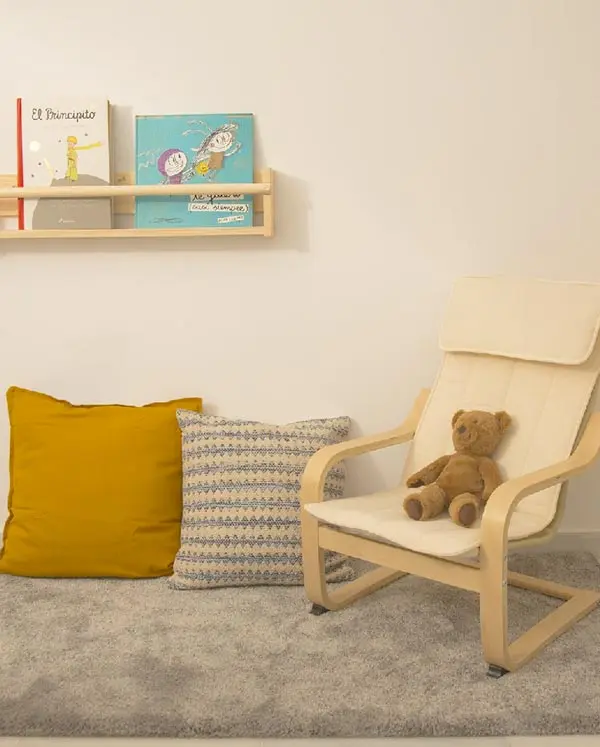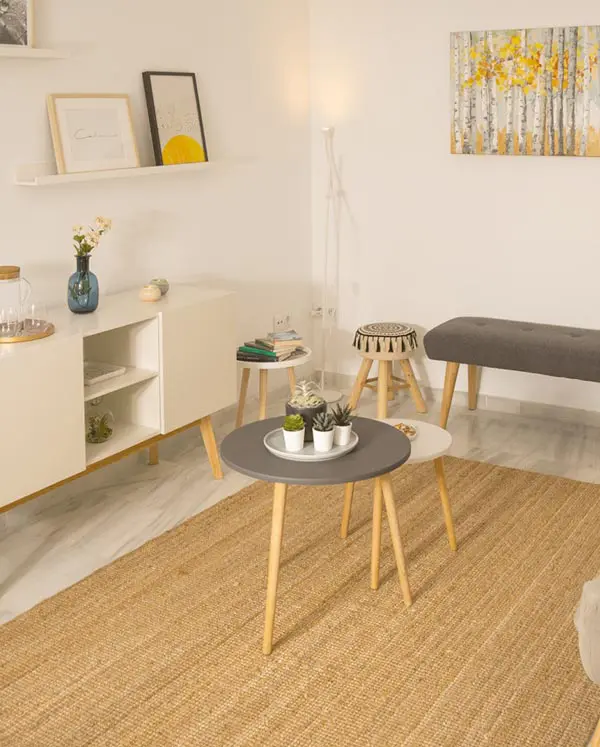Psychologist in Benalmádena
Welcome to Brilo Psicologists, our goal is that emotional well-being is within your reach. You will find useful information here if you are looking for an English Speaking Psychologist in Benalmádena.
- Members of the official collegiate of Psychologists of Eastern Andalucia
- Junta de Andalucia Authorised Health Centre. Registered number NICA 55.132

Services
Psychologist in Benalmádena - Catalina
Brilo Psychologists is a Health Centre authorized by the Junta de Andalucia located in Benalmadena – Malaga, with a field of action throughout the Costa del Sol, where you will find licensed Psychologists expert in Clinical and Health Psychology, Neuropsychology as well as Psychologists expert in Legal and Forensic Psychology. We cover different areas such as Adult Psychology, Child Psychology, Juvenile Psychology, Psychological expert opinions, in the form of individual, couple, family, group therapy, home therapy and online therapy procedures.


Adult Psychology
With extensive experience in Health Psychology, our treatments are characterized by their effectiveness.

Child and Teenage Psychology
We employ specialized techniques in childhood and adolescence psychology with excellent results.

Teenage Psychology
Our therapeutic focus allows confidence and a connection in the therapy of adolescents.

Couples Therapy
High success rate in Couples therapy using innovative techniques.

Online Therapy

Psychological Expert Opinions
As expert psychologists in legal and forensic psychology, we perform expert reports in different fields of law.
«Observar las cosas con detenimiento, permite ver más allá de lo evidente».
Our Philosophy
Psychological encounters are based on trust and therapeutic bonds through empathy, knowledge, confidentiality, dedication and closeness.
If you are here, surely there is an area of your life or of someone that you care for that you would like to consider; the most important thing for us is to respond to your reason for a consultation with all the ethical and professional tools that are within our reach, with the human factor as the main connector. Therefore, it is important to know you in depth through judicious and responsible analysis since you have decided to trust us with something as valuable as your emotional world.

Our Approach and Experience
We use psychological techniques according to individual differences and needs. We are aware of the great responsibility involved and therefore we base our practice on scientific evidence within the psychology field, our approach being contextual psychology, which integrates the techniques that have shown the greatest empirical evidence in recent decades, through the application of Third Generation Therapies where the principles of Cognitive and Behavioral Therapies CBT are redirected and emphasize the experience in context.
We are in continuous development and have more than 10 years of experience, with extensive experience in the areas described below:
Depressive Disorders
It consists of an alteration in the emotional state that can vary in intensity and depend on various life situations or our biology, where there may be intense sadness, frequent crying, affliction, pessimism, guilt, sense of failure, hopelessness, apathy, demotivation, lack of energy, difficulty enjoying what was previously enjoyed, slow movements, irritability, lack of concentration or memory, sleep disorders (insomnia or frequent awakening), constant negative thoughts, thoughts about death, among others.
Anxiety Disorders
They occur when we live for a long time with an excess of discomfort related to intense fear or panic, nervousness, worry, terror, difficulty to concentrate, tiredness, physical symptoms such as headaches, muscle tension, vomiting, catastrophic thoughts and others. They can occur in adults, children and adolescents. The most frequent are: Generalized Anxiety, Obsessive Compulsive Disorder (OCD), Phobias, Social Phobia, Panic Attacks, Post-traumatic Stress Disorder (PTSD)..
Behavioral Problems
They may occur in childhood, adolescence, and adulthood and some of their characteristics depending on the life cycle in which they occur are: aggressiveness, disobedience, negativism, attention-deficit/hyperactivity disorder (ADHD), vandalism, addictions, violating rules, lack of empathy, compulsive gambling, excessive jealousy (personality disorders may occur in adults).
Social Skills Development
These are all the social interaction skills that we have and develop throughout our lives and have a significant impact on our well-being and emotional balance. We work on aspects such as assertiveness, verbal and non-verbal communication, learning to establish limits, knowing how to say “no”, dare to give our opinion, know how to give and receive a criticism or praise, overcome shyness, speak in public.
Emotional Intelligence
Emotional intelligence is the ability we have to manage, understand or manage our own emotions and listen to what they tell us. We work through an analysis of ourselves to develop among other things: emotional discrimination (knowing how to identify the signs of my body and mind to give name to what I feel), emotional self-regulation (managing the intensity of my emotions so that they don’t overwhelm me), empathy, self-motivation and setting goals.
Psychological Evaluation and Reporting
Psychological evaluation allows you to know and understand in depth the most relevant aspects of a person and their environment. It’s objective is to arrive at a judgment or a diagnostic impression, in order to apply the best therapeutic strategy, to predict the evolution of a treatment, to assess the suitability of a person’s context or to give an expert opinion on a specific requirement. We conduct clinical psychology, intelligence, neuropsychology, forensic psychology as well as clinical psychological reports, neuropsychological reports and expert reports.
Facilities
Brilo Psicólogos
The atmosphere is very important as it facilitates interaction and relaxation in therapeutic encounters. We have spaces adapted for different ages and characteristics of the sessions, as well as access and toilets for people with reduced mobility.
We want you to feel free, confident, serene and intimate from the moment you enter our Centre and take these feelings with you when you leave.
In our sessions we can maintain a distance of more than 2 metres and we have the appropriate sanitary measures against COVID-19. See measures.




Facilities
Brilo Psicólogos
The atmosphere is very important as it facilitates interaction and relaxation in therapeutic encounters. We have spaces adapted for different ages and characteristics of the sessions, as well as access and toilets for people with reduced mobility.
We want you to feel free, confident, serene and intimate from the moment you enter our Centre and take these feelings with you when you leave.
In our sessions we can maintain a distance of more than 2 metres and we have the appropriate sanitary measures against COVID-19. See measures.
«The now is a gift»
Facilities«The now is a gift»
FacilitiesReviews
Get in Touch
Frequently Asked Questions
When should I see a psychologist?
There are several times in life when seeing a psychologist can be very beneficial:
- When you experience significant distress:
This is the most frequent reason for consultation, which affects your thoughts, emotions, actions and relationships with yourself and others: intense worries, constant fear, irritability, feeling of not being good enough, frustrations, tiredness and fatigue even if you have not been physically active, wanting to isolate yourself, wanting to sleep for long hours, being easily distracted and not connecting with your present and the people around you, trouble sleeping, constant nightmares, heart palpitations, discomfort in various parts of the body, thinking about the future in an apprehensive way, not getting over some experience of the past, feeling of emptiness. - When there is a specific personal difficulty:
Relationship and/or family problems, stress at work and/or school, difficulties in social interaction, anxiety due to unemployment, difficulties in social interaction, parenting issues or interaction with children. - When a traumatic or stressful event has happened:
Death of someone close, the presence or experience of a traumatic event (accident, robbery, abuse, illness, natural catastrophes), emotional break-ups (partner, friends, loved ones). - When you want to improve some aspect of yourself:
There are several aspects of ourselves that we can address in psychological therapy before problems arise, e.g. increasing motivation, improving self-esteem, developing social skills, losing the fear of public speaking, learning to listen, regulating and expressing emotions, good time management, decision making. - When you require a psychological assessment report:
Clinical evaluations can be carried out to determine various aspects such as personality, intelligence, emotions, behaviour, etc.
Expert reports related to legal and forensic aspects can also be carried out, for example in separations, guardianship and custody, sick leave, etc.
What is psychotherapy?
Psychotherapy is a space where you can explore aspects of yourself that you consider are important to you, in the company of a professional who has extensively studied all aspects related to our human psychology. Therefore, it is a safe space where you can observe, feel, re-signify, conclude and act in accordance with the objectives that are important to you at a given moment in your life and that generate emotional well-being.
Psychological meetings consist of a dialogue where active listening and reflection allow us to realise the best way to deal with our emotional concerns.
This dialogue is supported, depending on the case, with activities or dynamics inside and outside of the sessions aimed at achieving therapeutic objectives.
The first part of a psychological intervention is the assessment, where the idea is to know yourself: the way you think, how you feel, how you act, how your body reacts in relation to your particular context and your reason for consultation. Then follows the intervention, where we apply the most effective psychological techniques to achieve your goals, and then we follow up to reinforce the results achieved.
If you want to see in more detail how we do psychotherapy at Brilo Psychologists you can
click on the following links according to your interests:
If I have Psychotherapy, will I get better?
Improvement in psychological therapy depends on several aspects such as perseverance, openness, and the therapeutic bond and teamwork between therapist and client.
Generally, when these factors are present and following a psychological assessment that takes a broad view of the best way to achieve these goals according to the unique characteristics of each person, the therapeutic goals that have been set in an honest way are achieved. With this achievement of goals we observe improvement in the majority of cases.
On the other hand, if you are in psychological therapy, the improvement depends on what you consider to be being better. It is possible that some people become aware of aspects of their life that can cause pain, but if worked with, although painful, will always bring growth as a person.
It is also the case that you may come with an expectation and after the course of therapy your view of what you are doing changes – therapy changes your vision of what it means to be better.
In conclusion, whether it is to achieve your objectives, to grow as a person by realizing
something you hadn’t noticed about yourself before, or by changing the way you perceive well-being, there is always growth or improvement.
If I go to a psychologist, will it be totally confidential?
Confidentiality is the vehicle of trust of therapy. Information, verbal or written that is dealt with in the sessions is totally confidential. However, as with everything else, there are two important exceptions in which confidentiality can be breached considered by the psychologist’s code of ethics: If there is a court order requesting specific information regarding a case, or if someone’s life is in danger -this must be reported without exception.
How do I know if I need to see a psychologist?
If you have already tried to feel better or to solve a situation with different personal strategies, if you have had the support of people close to you and you have given yourself some time to see if the situation evolves in a favourable way, but you still feel overwhelmed, with significant discomfort, it is undoubtedly time to seek professional help. You don’t have to wait until the suffering or difficulty has done you deep harm before seeking that support.
Do I have to take medication as part of my psychological treatment?
It is unusual for psychological treatment to require medication. The idea of psychological intervention is to address the emotional aspects through the development of personal strategies to avoid the need for medication. However, in some cases the interdisciplinary work with psychiatry is very favourable to achieve emotional stability during the treatment and to reach the therapeutic goals. Some people have to take some psychotropic medication on an occasional or short term basis, others require long-term medication depending on their diagnosis and personal circumstances.
It is important to emphasise that having to take medication does not mean that there is something wrong, it simply indicates that there are different physiological variables that require this pharmacological support, which in combination with psychotherapy usually brings very good results in these specific cases.
How long does psychological therapy last - and how long does each session last?
The duration of therapy or treatment depends on various personal factors that are very difficult to control and predict. Each person has specific personal circumstances – e.g. there are people who are able to reduce their anxiety levels after a few sessions with techniques focused on this objective as they have the possibility to carry out activities outside of therapy that support these techniques. For other people it is not so easy because there are other variables that interfere such as implication of the therapy, difficulties in the context of the therapy or emotional resistance, to mention a few examples.
Since we are dealing with human beings with that wonderful individuality and not with machines that we can programme, it is not possible to say how long the therapy would last with certainty, and also because there are reasons for consultation that require a different time than others.
The duration is discussed between the consultant and the therapist, where both the spacing of the sessions and the end of the treatment according to the needs of the client and the relevant aspects observed in the therapy. However, it is usual that after 8-12 therapy sessions important changes are perceived in most of the cases. More complex situations would usually require a greater number of sessions.
Psychological therapy sessions at Brilo Psychologists last one hour. In the case of younger children the duration may be shorter depending on their attention threshold. They are usually held once a week, and as the objectives are achieved, the sessions are spaced out, for example, once every two weeks and then followed by follow-up sessions once every one or two months.
 627 27 65 22
627 27 65 22

